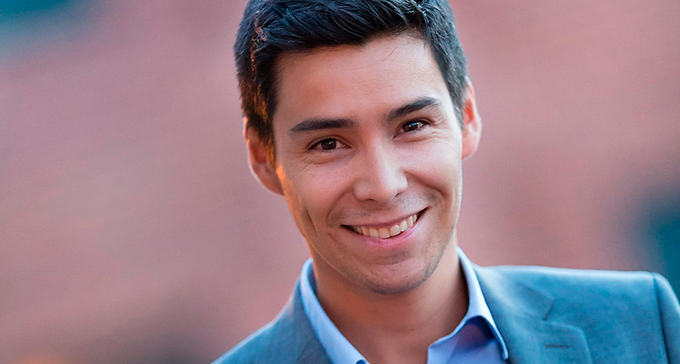
Osiel Ibáñez
“One should not be afraid to try and influence”
Osiel Ibáñez is one of Musikverket’s three participants in the ISPA Swedish Fellowship Programme, a three-year leadership training for performing arts producers. The programme aims to provide increased knowledge and better tools for international co-operation on the independent music scene.
In everyday life, Osiel Ibáñez is production manager for the music organisation Selam. Since 1997, the organisation has worked to increase diversity within the Swedish music scene, and runs an international business based in Stockholm and Addis Ababa. Osiel Ibáñez has worked in the Swedish Arts Council’s reference group for independent music groups and also lectured on Selam’s internationalisation strategies and audience development at international music trade fairs and conferences. He will participate in the ISPA Swedish Fellowship Programme between 2015 and 2017. The programme is funded by Musikverket and the Swedish Performing Arts Association.
How would you sum up the programme so far?
This was my third convention, counting the Malmö Congress in summer 2015, and in summary I would describe ISPA as a network of contacts and experience. The fellowship programme begins each ISPA Congress with one or two days of training for the fellows on a variety of topics. During these days it’s fun to hear more from the various scholarship holders about their conditions and challenges.
What is the most important lesson so far?
– That you should not be afraid to try and influence. In previous congresses, there has, especially from us scholarship holders, been expressed a need to drive ISPA in a direction that feels more urgent for our times, where global developmental connections within culture are increasingly important. I think this need has been taken into consideration so far, although much remains to be done.
Has your participation led to any concrete initiatives?
– At Selam, we conduct a high level of international business and I already have an idea of what kinds of potential partnerships may arise. I see participation in ISPA as a learning process, which with the right maturity and timing, will lead to many collaborative and qualitative projects. I want, in other words, rather not to hurry anything, but it may be that, already in the autumn, we are will see a music act stand on a Swedish stage as the result of an ISPA contact!
How will you share your new knowledge on the independent music scene?
– I work on a daily basis to create meetings with Swedish artists, partners and audiences. Anything that strengthens us as an organisation will also be of benefit to the music scene.

Kommentarer